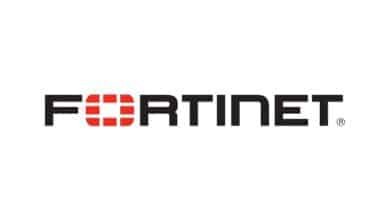
Introduction
Reverse health reviews are an emerging trend in the health and wellness industry, offering a unique perspective on products and services. Unlike traditional reviews, which provide feedback from consumers, reverse health reviews involve companies and health experts reviewing feedback from their customers to improve their offerings. This innovative approach ensures that health products and services evolve based on real user experiences, enhancing overall customer satisfaction.
What Are Reverse Health Reviews?
At their core, reverse health reviews are about turning the traditional review process on its head. Instead of consumers reviewing products, companies and health professionals analyze and respond to customer feedback. This method allows for continuous improvement and adaptation, ensuring that products meet the evolving needs of consumers. Reverse health reviews can include everything from fitness gadgets to dietary supplements and medical treatments.
The Importance of Reverse Health Reviews
Reverse health reviews are crucial for several reasons. Firstly, they provide a platform for consumers to voice their concerns and suggestions, fostering a sense of community and trust. Secondly, they enable companies to stay ahead of the curve by adapting their products and services based on real-world feedback. This proactive approach can lead to higher customer satisfaction and loyalty. Additionally, reverse health reviews often highlight common issues that might not be apparent during the initial product development phase.
How Reverse Health Reviews Work
The process of reverse health reviews typically involves several steps. Initially, companies collect feedback from their customers through surveys, social media, and direct communication. This feedback is then analyzed by health professionals and product developers to identify trends and areas for improvement. The insights gained from this analysis are used to make necessary adjustments to the product or service. Finally, the company communicates these changes back to the customers, demonstrating their commitment to continuous improvement.
Benefits of Reverse Health Reviews for Consumers
For consumers, reverse health reviews offer numerous benefits. They provide a direct line of communication with companies, allowing them to share their experiences and suggestions. This feedback loop ensures that their voices are heard and valued. Additionally, reverse health reviews can lead to better, more effective health products and services, as companies are motivated to make improvements based on actual user experiences. This results in a more personalized and satisfactory consumer experience.
Benefits of Reverse Health Reviews for Companies
Companies also stand to gain significantly from reverse health reviews. By actively seeking and responding to customer feedback, they can improve their products and services, leading to higher customer satisfaction and loyalty. Moreover, reverse health reviews can help companies identify potential issues early on, preventing larger problems down the line. This proactive approach can also enhance a company’s reputation, as it shows a commitment to quality and customer care.
Writing Effective Reverse Health Reviews
Writing effective reverse health reviews involves more than just collecting feedback. It requires a systematic approach to analyzing and responding to that feedback. Companies should start by encouraging honest and detailed feedback from their customers. This can be achieved through surveys, social media interactions, and direct communication. Once the feedback is collected, it should be carefully analyzed to identify common themes and areas for improvement. Finally, companies should communicate the changes they have made based on this feedback, showing customers that their input is valued and acted upon.
Challenges in Implementing Reverse Health Reviews
Despite their benefits, implementing reverse health reviews can be challenging. One of the main obstacles is collecting sufficient and meaningful feedback from customers. Not all customers are willing to provide detailed feedback, and some may be reluctant to share negative experiences. Additionally, analyzing and acting on feedback requires significant time and resources. Companies need to invest in the necessary tools and personnel to ensure that the reverse health review process is effective.
Overcoming Challenges in Reverse Health Reviews
To overcome these challenges, companies can adopt several strategies. Firstly, they can incentivize customers to provide feedback by offering discounts, freebies, or other rewards. This can encourage more customers to share their experiences. Secondly, companies can use advanced data analysis tools to efficiently process and analyze feedback. Finally, clear communication with customers about how their feedback is being used can foster trust and encourage further participation in the review process.
The Future of Reverse Health Reviews
The future of reverse health reviews looks promising. As more companies recognize the value of this approach, we can expect to see a greater emphasis on customer feedback and continuous improvement. Advances in technology, such as artificial intelligence and big data analytics, will also play a crucial role in enhancing the reverse health review process. These tools will enable companies to collect, analyze, and respond to feedback more efficiently, leading to better health products and services.
Conclusion
Reverse health reviews represent a significant shift in the way companies interact with their customers. By focusing on feedback and continuous improvement, they ensure that health products and services meet the needs and expectations of consumers. This approach not only benefits consumers but also helps companies stay competitive in a rapidly evolving market. As the trend of reverse health reviews continues to grow, it promises to bring about a new era of innovation and customer satisfaction in the health and wellness industry.
FAQs
1. What makes reverse health reviews different from traditional reviews?
Reverse health reviews differ from traditional reviews in that they involve companies analyzing and responding to customer feedback to improve their products and services, rather than just receiving passive reviews from consumers.
2. How can companies encourage customers to participate in reverse health reviews?
Companies can encourage participation by offering incentives such as discounts, freebies, or other rewards, and by clearly communicating how customer feedback will be used to improve products and services.
3. What are the main challenges of implementing reverse health reviews?
The main challenges include collecting sufficient and meaningful feedback from customers, analyzing the feedback efficiently, and making necessary improvements based on that feedback.
4. How do reverse health reviews benefit consumers?
Reverse health reviews benefit consumers by providing a direct line of communication with companies, leading to better, more personalized health products and services based on actual user experiences.
5. What role does technology play in reverse health reviews?
Technology, such as artificial intelligence and big data analytics, plays a crucial role in enhancing the reverse health review process by enabling companies to collect, analyze, and respond to feedback more efficiently.




